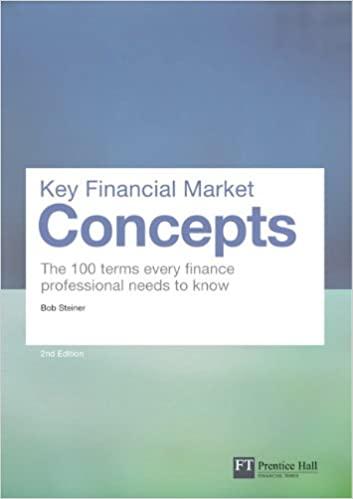Question
As a commercial loan officer-trainee at Farmwood National Bank, Adams future looked very bright. He had recently completed a series of credit analysis exams, earning
As a commercial loan officer-trainee at Farmwood National Bank, Adams future looked very bright. He had recently completed a series of credit analysis exams, earning the highest score in his training group and capturing the attention of the banks senior commercial loan officers. In the second phase of his training program, Adam was promoted to a financial analysts position and assigned to work for Mary Ryan, one of the banks most productive commercial loan officers. Like Adam, Mary had earned the highest score on the analysis exam among her training group five years ago, and she and Adam quickly became a team to be reckoned with inside the banks corporate banking division.
In the first few months of his new assignment, Adam quickly grew to admire his new boss. In most cases, when he evaluated the creditworthiness of a new customer for Mary, she readily agreed with his analysis and praised his attention to detail. However, one recent loan application left Adam totally confused. Evaluating a request from Mitchell Foods, Inc., for a $5 million short-term loan to finance inventory expansion, Adam noted that the firm was located in the greater metropolitan area served by Farmwood National, and the firm was financing its retail outlets with operating leases. Unlike financial leases, operating leases only appear in the notes accompanying the firms financial statements, and Mitchell Food current balance sheet gave the appearance of fat less leverage than the firm actually carried.
Adam promptly noted this fact in a memorandum of concern that he forwarded to Mary for inclusion in the Mitchell Foods credit file. Much to his surprise, Mary discounted the problem and told Adam to destroy the memo. After the banks senior credit committee approved the Mitchell Foods loan request, Mary defended her position by telling Adam that the issue of operating lease leverage never surfaced during the credit committee meeting.
In spite of Marys reassurance, Adam knew from his days in credit school that Mitchell Foods operating lease liability was handled improperly. While pondering this problem over coffee in the employee cafeteria, Adam overheard Mary talking excitedly among a group of young commercial lenders. It seems she had just received word that her personal mortgage loan application at Bay Street Savings and Loan had been approved, and the terms of this requirement have Mary 100 percent, fixed-rate financing of 25 years at 2 percent below the going rate of interest on fixed-rate mortgage loans.
Given his recent credit analysis, Adam recalled that the president of Mitchell Foods was also Chairman of the Board at Bay Street Savings. He began to wonder whether Marys actions as a loan officer had been compromised by her personal financial affairs, or whether he was simply thinking too much. After all, Mary was an outstanding loan officer and Adams mentor.
What should Adam do? Anything? Nothing? Please provide your opinion if you were Adam.
Step by Step Solution
There are 3 Steps involved in it
Step: 1

Get Instant Access to Expert-Tailored Solutions
See step-by-step solutions with expert insights and AI powered tools for academic success
Step: 2

Step: 3

Ace Your Homework with AI
Get the answers you need in no time with our AI-driven, step-by-step assistance
Get Started


